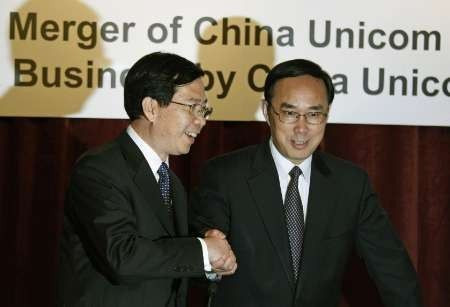Analysis: China M&A committee lifts hopes of more transparency

China's new review body for inward M&A could bring some much-needed transparency to the deal approval process and even make it quicker for foreign companies to get tie-ups with mainland firms past the authorities.
This weekend's announcement of a new committee to vet acquisitions on the grounds of national security looked on the surface to be another hoop that foreign companies had to jump through in order to get a deal approved.
But lawyers and bankers say that China already scrutinizes deals for national security issues and until now had done so under the guise of other regulations such as competition law.
The new body will just formalize this and make the deal approval process more straight forward, they add.
It may actually be quite a positive thing for M&A in China, said Martin Commons, a special counsel for Baker and McKenzie in Beijing, who advises foreign firms on China's competition laws.
China's inbound M&A volume topped $25 billion in 2010, and is expected to come in at a similar level in 2011 if not higher. But several deals in recent years have hit stumbling blocks, including Coca-Cola's high-profile $2.4 billion bid for juice maker Huiyuan in 2009.
The State Council - China's Cabinet - said it will launch the high-level commission next month to review foreign companies' merger and acquisition deals to protect national security, specifically in military, energy, technology, key transportation and other sectors.
CHANGE ON ITS WAY
China attracted $105.7 billion in foreign direct investments in 2010, 17.4 percent more than in 2009, but some foreign businesses have complained that the Chinese government is becoming more unfriendly toward investors.
Deals between Chinese and foreign firms that pose no obvious risk on competition grounds can at present get held up for up to three months by the Ministry of Commerce which oversees the country's anti-trust rules.
Compare this with the European Union, where non-contentious deals tend to get passed within a month, while in the United States approval can be as quick as a week.
Experts say China's lengthy deal-approval process is partly because officials have been unwilling to pass a deal on competitive grounds before making sure the government did not have additional concerns.
But that pressure is expected to be lifted by the new body.
If you're going to have the issue considered, it's now going to be considered in a clear and express manner rather than as part of what ostensibly should just be a competition law review, said Commons at Baker and McKenzie.
The new commission appears to be similar to the U.S. body tasked with vetting inbound deals, known as the Committee on Foreign Investment.
But China's version may have a little more room for maneuver with its rules.
In practice, the Chinese government often has a lot of flexibility in how it implements its policies, said a China-based banker working for a western investment bank.
They can be loose if they want to, or strict. And they can make exceptions for certain deals. But whenever they announce new requirements, that suggests a more rules-based approach.
MORE DEALS?
Analysts say 2011 is expected to be a particularly strong year for M&A activity between Chinese and foreign firms in a number of sectors including high-tech, mineral resources, agriculture, financial and consumer goods.
But foreign firms are wary given that several large deals have hit stumbling blocks in China in recent years.
Coke's bid for Huiyuan, China's biggest pure juice maker, was blocked on competition grounds even though the two combined would have held just a fifth of the Chinese juice market -- prompting talk that the deal was really halted on nationalist grounds.
Now such cases may instead be handled by the new review body, but experts says its creation is unlikely to lead to a rise in the proportion of deals that are halted as initially feared.
The announcement of the new high-level commission does not mean that China is blocking access to its markets or that it will block deals with ease, said Benjamin Wey, president of New York Global Group, a market consultancy with a focus on U.S.-China investments.
China wants to consolidate many heavy industries such as steel into the hands of a few big players, and it has blocked several foreign attempts to buy into its huge steel sector, by far the world's biggest.
In 2007, it blocked ArcelorMittal from gaining a majority stake in China Oriental Group and in 2009 it forced Russia's Evraz Group to abandon an option to take control of Delong Holdings Ltd, a Chinese steelmaker listed in Singapore, in a $1.5 billion deal.
Deals posing a major threat to China's strategically important sectors and national companies will still be blocked or made subject to conditions, albeit this time in a more explicit fashion.
It makes overt a reality that has always existed in China: deals are subject to government review and, in turn, subject to political considerations, said Walker Wallace, a partner and M&A attorney with O'Melveny & Myers in Shanghai.
© Copyright Thomson Reuters 2024. All rights reserved.




















